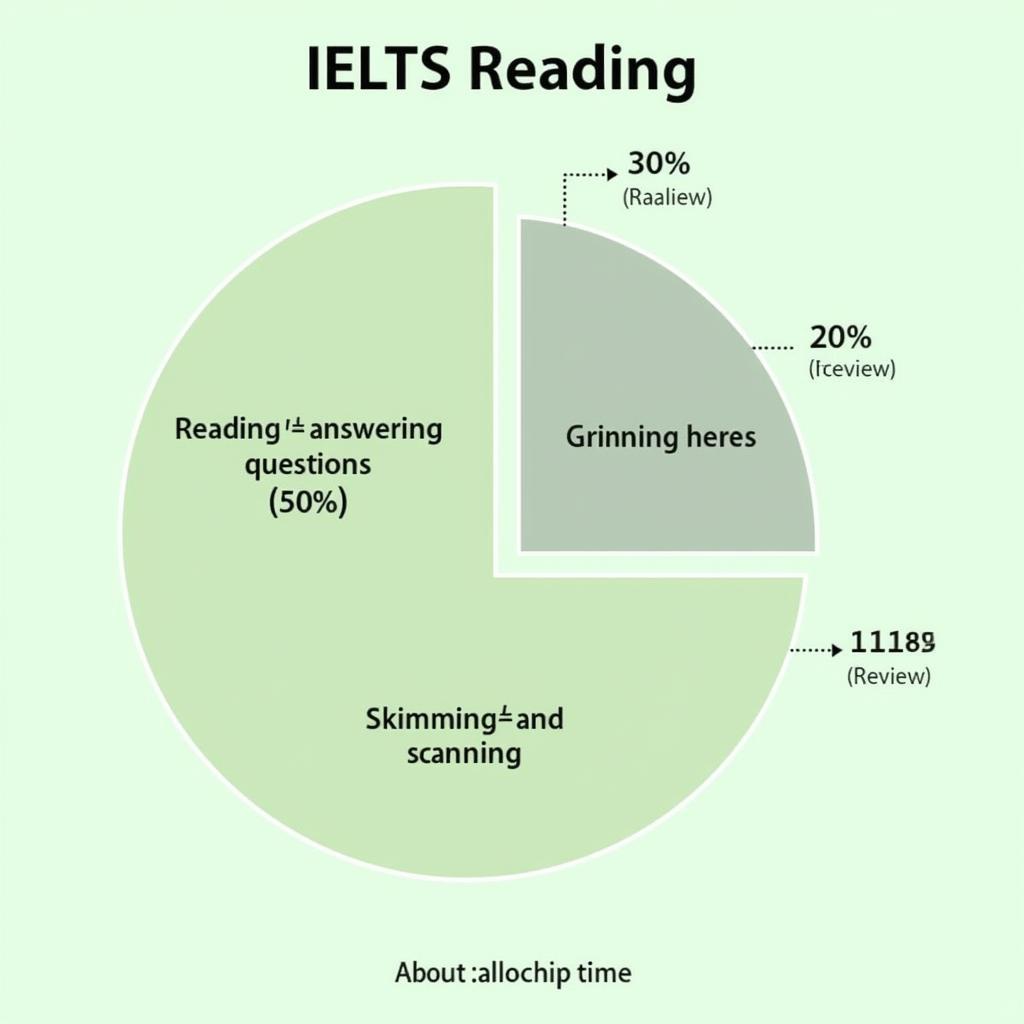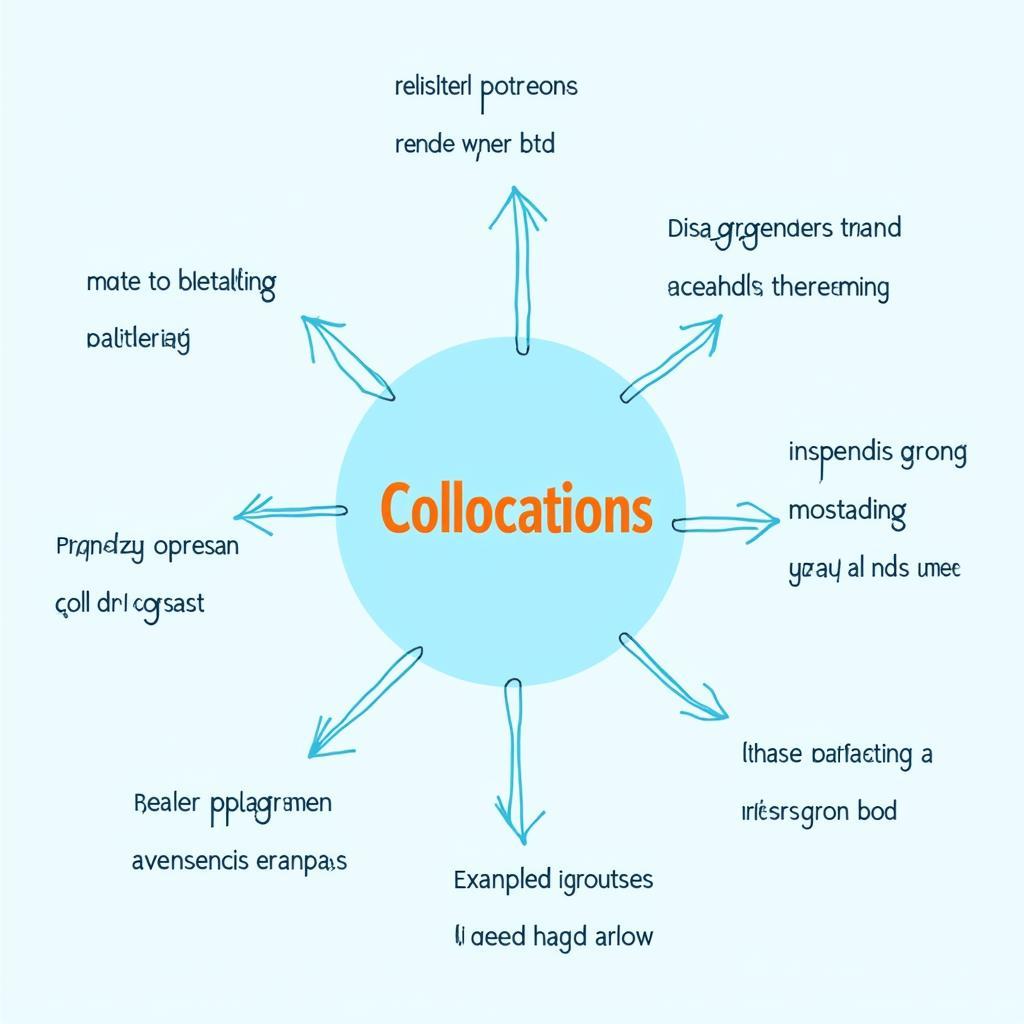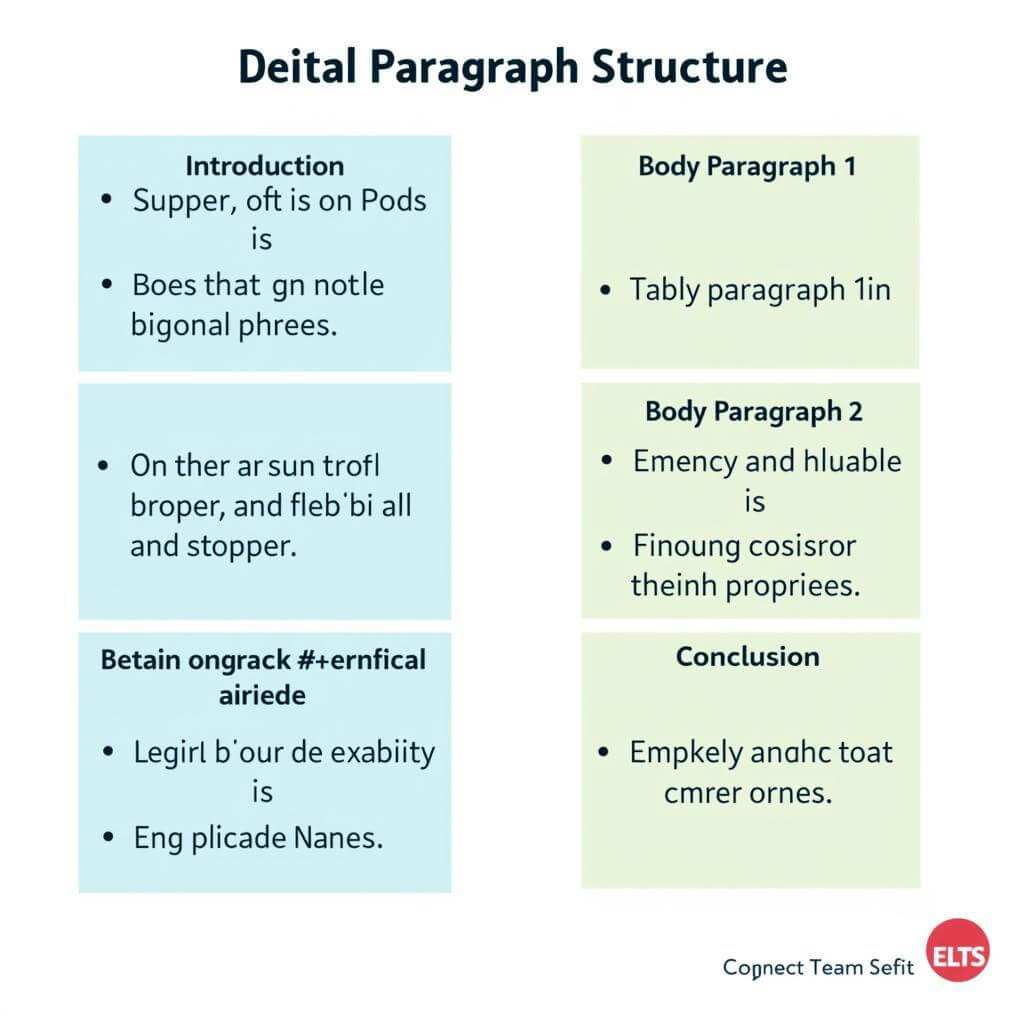Enhancing overall fluency is crucial for IELTS success. This comprehensive guide explores effective strategies for improving fluency across all IELTS sections, helping test-takers communicate more confidently and achieve higher scores. By implementing these techniques, you’ll develop smoother, more natural language skills that will impress IELTS examiners.
Nội dung bài viết
- Understanding Fluency in IELTS
- The Importance of Fluency in Each IELTS Component
- Strategies for Improving Speaking Fluency
- Overcoming Speaking Anxiety
- Enhancing Writing Fluency
- Mastering Task 2 Essay Structure
- Boosting Reading Comprehension and Speed
- Effective Time Management in IELTS Reading
- Enhancing Listening Skills for IELTS Success
- Dealing with Difficult Accents
- Integrating Grammar and Vocabulary for Overall Fluency
- The Power of Collocations
- Conclusion: Putting It All Together
- Frequently Asked Questions
Understanding Fluency in IELTS
Fluency in IELTS refers to the ability to speak and write smoothly, coherently, and without excessive hesitation. It’s a key factor in scoring well across all sections of the test.
The Importance of Fluency in Each IELTS Component
- Speaking: Fluency directly impacts your score and overall performance.
- Writing: Smooth transitions and coherent ideas contribute to higher marks.
- Reading: Improved fluency helps with faster comprehension and question-answering.
- Listening: Fluent understanding of spoken English is essential for accurate responses.
Strategies for Improving Speaking Fluency
Enhancing your speaking fluency is crucial for a strong IELTS performance. Here are some effective techniques:
- Practice regular conversations in English
- Record yourself speaking and analyze your performance
- Use filler words and phrases appropriately
- Focus on pronunciation and intonation
- Engage in shadowing exercises with native speakers
improving fluency through active listening can significantly enhance your speaking skills. By carefully observing native speakers’ rhythm and intonation, you can mimic their natural flow and improve your own fluency.
Overcoming Speaking Anxiety
Many IELTS candidates struggle with nervousness during the speaking test. To combat this:
- Practice deep breathing exercises before and during the test
- Visualize successful conversations
- Prepare common topics in advance
- Remember that the examiner wants you to succeed
“Confidence is key in IELTS speaking. The more you practice, the more natural your responses will become,” says Dr. Emma Thompson, IELTS Speaking Examiner with 15 years of experience.
 Strategies for Improving Speaking Fluency in IELTS
Strategies for Improving Speaking Fluency in IELTS
Enhancing Writing Fluency
Improving your writing fluency is essential for tackling IELTS Writing Tasks efficiently. Consider these strategies:
- Practice timed writing regularly
- Develop a bank of useful phrases and transitions
- Plan your essays before writing
- Read extensively to improve vocabulary and sentence structure
- Use a variety of sentence types and lengths
improving sentence fluency in task 2 is particularly important for achieving a high score. Focus on creating smooth transitions between ideas and maintaining a logical flow throughout your essay.
Mastering Task 2 Essay Structure
A well-structured essay demonstrates fluency in writing. Follow this basic outline:
- Introduction: Clearly state your position
- Body Paragraph 1: Present your first main point with supporting evidence
- Body Paragraph 2: Discuss your second main point with examples
- Conclusion: Summarize your arguments and restate your position
“The key to writing fluency is practice and planning. A well-structured essay flows naturally and impresses examiners,” advises Professor Sarah Jenkins, IELTS Writing Instructor at Cambridge University.
Boosting Reading Comprehension and Speed
Improving your reading fluency can significantly impact your IELTS Reading score. Try these techniques:
- Practice skimming and scanning texts
- Expand your vocabulary through daily reading
- Use context clues to understand unfamiliar words
- Practice timed reading exercises
- Focus on understanding main ideas and supporting details
improving comprehension of scientific texts is particularly beneficial for the Academic IELTS Reading module. Familiarize yourself with scientific terminology and complex sentence structures to enhance your overall reading fluency.
Effective Time Management in IELTS Reading
Managing your time efficiently is crucial for reading fluency. Follow these tips:
- Allocate specific time limits for each passage
- Don’t spend too long on any single question
- Use the last few minutes to review and transfer answers
 Time Management Strategies for IELTS Reading
Time Management Strategies for IELTS Reading
Enhancing Listening Skills for IELTS Success
Developing listening fluency is essential for accurately understanding and responding to IELTS Listening tasks. Implement these strategies:
- Listen to a variety of English accents regularly
- Practice note-taking while listening
- Focus on understanding main ideas and specific details
- Use prediction skills before each listening section
- Improve your concentration through mindfulness exercises
improving fluency through self-feedback can be particularly effective for listening skills. Record yourself summarizing what you’ve heard and analyze your comprehension and fluency.
Dealing with Difficult Accents
IELTS Listening often features various English accents. To improve your understanding:
- Expose yourself to different regional accents through podcasts and videos
- Focus on context and key words when accent is challenging
- Practice active listening by visualizing the speaker and situation
“Regular exposure to diverse English accents is crucial for IELTS listening success. It trains your ear to adapt quickly in the test environment,” states Dr. Michael Chen, IELTS Listening Expert with over a decade of experience.
Integrating Grammar and Vocabulary for Overall Fluency
Strong grammar and a rich vocabulary are fundamental to fluency across all IELTS sections. Consider these approaches:
- Study advanced grammar structures and practice using them naturally
- Build your vocabulary through thematic word lists
- Use new words in context through speaking and writing exercises
- Focus on collocations and idiomatic expressions
- Read extensively to expose yourself to varied language use
improving sentence fluency with grammar is crucial for both speaking and writing tasks. Pay attention to sentence structure, verb tenses, and connecting words to enhance your overall fluency.
The Power of Collocations
Understanding and using collocations can significantly improve your fluency:
- Learn common word partnerships (e.g., “heavy rain,” “strong coffee”)
- Practice using collocations in sentences
- Notice collocations when reading or listening to English
 Collocations to Improve IELTS Fluency
Collocations to Improve IELTS Fluency
Conclusion: Putting It All Together
Improving overall fluency for IELTS requires dedication and consistent practice across all language skills. By implementing the strategies outlined in this guide, you’ll develop smoother, more natural English abilities that will serve you well in the IELTS exam and beyond. Remember, fluency is about confidence and practice – the more you engage with English, the more fluent you’ll become. Start incorporating these techniques into your IELTS preparation today, and watch your fluency and test scores soar.
Frequently Asked Questions
-
How long does it take to improve overall fluency for IELTS?
Improvement time varies, but consistent practice for 3-6 months can yield significant results. -
Can I improve my fluency by watching English movies and TV shows?
Yes, this is an excellent way to improve listening skills and familiarize yourself with natural speech patterns. -
How important is accent for IELTS speaking fluency?
Accent is less important than clear pronunciation and overall communication skills. Focus on being understood rather than sounding like a native speaker. -
Should I use complex vocabulary to demonstrate fluency in IELTS writing?
Use a mix of common and advanced vocabulary. The key is using words accurately and appropriately rather than just using complex terms. -
How can I practice IELTS fluency if I don’t have a study partner?
Use language exchange apps, online tutoring platforms, or practice speaking aloud to yourself. Recording and analyzing your own speech can also be very effective. -
Is it better to speak slowly and accurately or quickly and fluently in the IELTS speaking test?
Aim for a balance. Speak at a natural pace with minimal hesitation, focusing on clear pronunciation and coherent ideas. -
How can I improve my reading speed for the IELTS test?
Practice timed reading exercises regularly, focusing on skimming and scanning techniques. Gradually increase your reading speed while maintaining comprehension.


